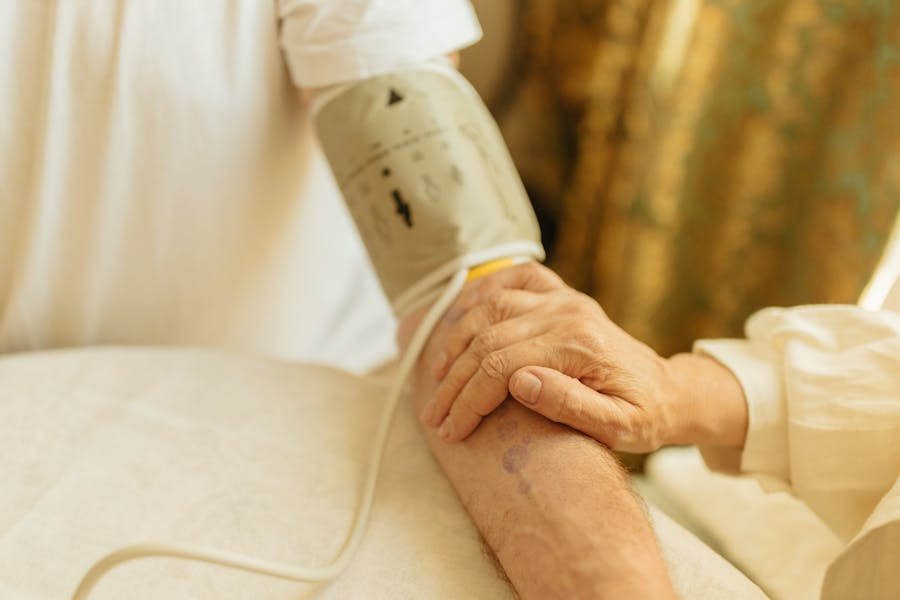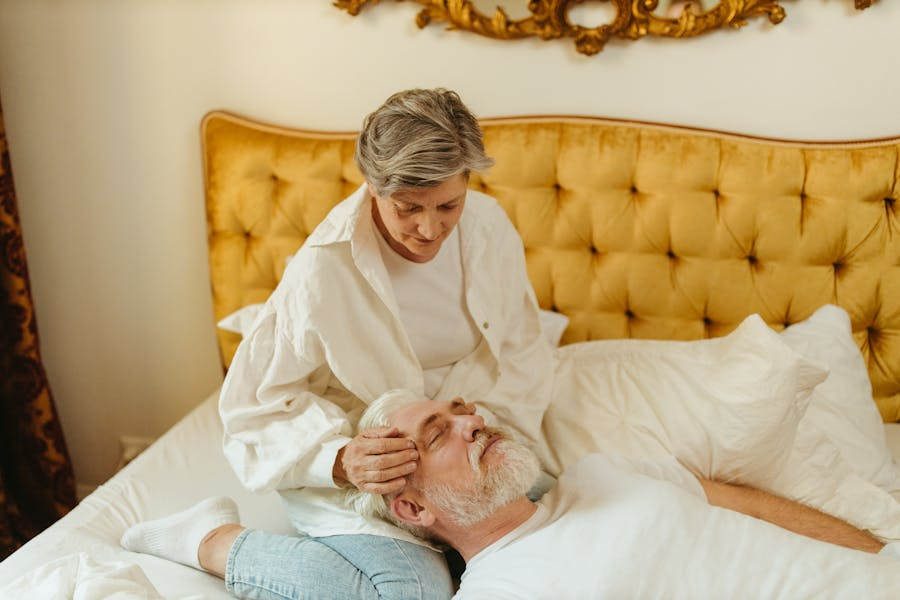


The benefits of hospice care at memory care homes mean one thing: your loved one gets expert care where they feel most comfortable, with less stress for everyone involved.
Caring for someone with advanced dementia is challenging. It’s draining—emotionally, physically, and mentally.
If you’ve been in the trenches, you know what I’m talking about. Between juggling meds, managing meltdowns, and dreading those late-night hospital runs, it feels like a game you can’t win.
Memory care homes like Applewood Our House do an excellent job caring for residents. But when dementia reaches those end stages, we need some serious backup.
That’s where hospice care comes in. And no, hospice doesn’t mean you’re giving up. It’s about doing what’s best for your loved one and you.
Here’s the harsh reality: Burnout is around the corner if you’re the family caregiver.
You’re not just running a marathon—you’re sprinting a marathon, and the finish line keeps moving.
And if you don’t have a system, you’ll eventually crash. Hard.
Without hospice care, here’s what happens:
It’s a broken system. But it doesn’t have to be.
Let me break this down. Adding hospice care to memory care is like hiring an expert team to back you up. It’s next-level support, for us, our residents, and their families.
Here’s what that looks like:
Hospice isn’t about squeezing out every last medical treatment. It’s about making sure your loved one is comfortable. Forget rushing to the hospital—the hospice team handles symptoms on-site.
Hospice care means around-the-clock support. Nurses, doctors, caregivers, family members—they’re all part of the squad. And they’re not just “on call.” They show up. This kind of backup means fewer emergencies and more peace of mind.
You can’t run on fumes forever. Hospice care gives families a breather. You get time to step back, recharge, and focus on the important stuff—like being with your loved one instead of just managing their care.
Here’s how hospice helps families:
Sarah was ready to break under the pressure of caring for her mom. Our hospice care stepped in, gave her a few days off, and kept things running smoothly. Sarah finally had time to be with her mom without worrying about meds or doctor visits.

Here’s the best part—Medicare picks up the bill for hospice care. Yeah, you heard that right. Most hospice services are fully covered, which means:
Age and Enrollment Matter

Start by consulting your loved one’s doctor or memory care staff. They’ll let you know if hospice care makes sense based on your loved one’s condition.
Not all providers qualify, so choose a Medicare-certified hospice provider. This is non-negotiable—no certification, no coverage.
The hospice provider will collect the senior’s physician’s documentation confirming the terminal diagnosis. This paperwork is what kickstarts the entire process.
Once all the documents are in place, the senior (or their legal representative) signs the election statement. This allows the hospice care team to start services, like pain management, emotional support, and help with daily activities.
Medicare requires that the hospice team periodically reevaluate the senior’s condition. If their health improves, they might leave hospice care and return to regular memory care or medical treatment. No worries—if things change again, they can always re-enter hospice care later.

Here’s a surprise twist: Some people get better under hospice care. Yeah, seriously. When the focus shifts to comfort and proper care, some patients start eating better, feeling better, and gaining a little strength. That means they can leave hospice and head back to regular memory care.
If your loved one’s dementia is getting worse, don’t wait until you’re overwhelmed with stress. Make the call now. Adding hospice care to memory care gives your loved one the best chance to live comfortably—and it gives you peace of mind.
It is important to:
Hospice care isn’t a sign of giving up—it’s a strategy for better care. Make the smart move and give your loved one (and yourself) the peace and support you deserve.
Click here to Learn more about hospice care at Applewood Our House.